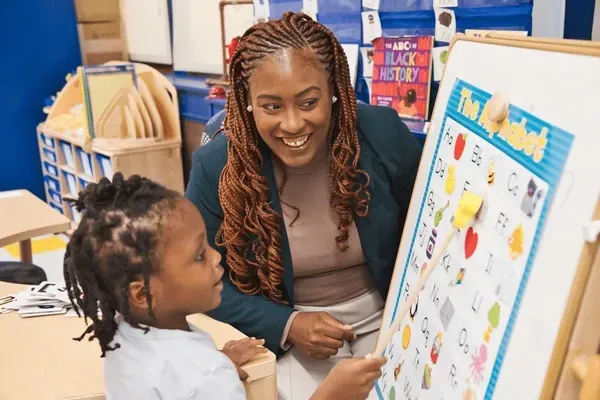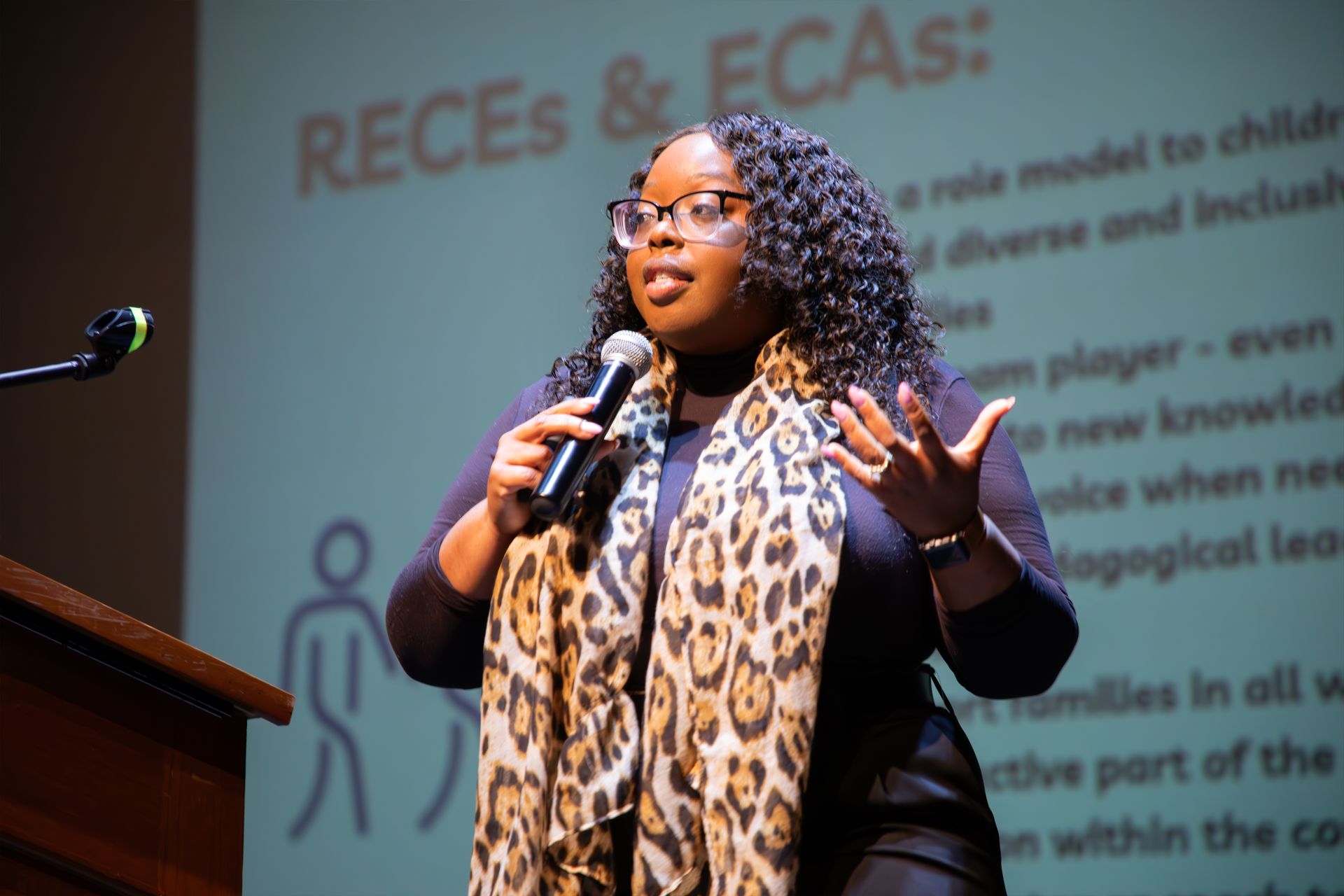Fresh Perspectives on ECE Appreciation: An Interview with Anisha Angella
Anisha Angella is an entrepreneur, author, Registered Early Childhood Educator (RECE), and ECE leadership coach on a mission to elevate and empower the ECE community. She has spent years in the classroom, in senior management, and now as the founder and CEO of The Early Childhood Coach.
In honor of Child Care Worker and Early Childhood Educator Appreciation Day (October 17, 2023), Anisha gives her insights on cultivating a community that supports and appreciates each other today and throughout the year.
You lead several workshops on appreciation in the ECE community. What makes this topic so meaningful to you?
Early childhood educators (ECEs) deserve more appreciation for their work. They play a major part in raising children, but society doesn’t acknowledge their essential role. A child might come into a program as an infant and spend 35-40 hours per week with educators until they leave at age 4. Educators have a huge impact in prepping children for school. Kids don’t magically learn to cooperate in a classroom environment; ECEs are building that essential foundation!
We also need more emphasis on showing appreciation in addition to recognition. Recognition is a pat on the back, or a thank you for doing your job, whereas appreciation is individualized and supports people for who they are. Many leaders need help with how to appreciate their team members authentically. You can have the best intentions, but a new approach is necessary if your efforts don’t resonate with staff.
Can you share more about your vision for year-long appreciation?
Celebrating ECE appreciation in October is a great start. But October should be just the beginning! Appreciation becomes more meaningful when it’s not set on a specific day. Leaders can look for spontaneous opportunities to appreciate their staff. ECEs and leaders have lots of conversations about educators’ goals. Goal achievement is the perfect opportunity to say congratulations and acknowledge the amazing job they are doing.
Another great way to continue year-round appreciation is to involve the whole community. Work with families, children, and other staff members to create multiple avenues of appreciation. The ultimate goal is to build a community of appreciation, but it can’t be done in one day or one month of the year.

What are some unique ideas for ECE communities and supervisors to show their team appreciation this month?
- One of my favorite ideas is having an appreciation wall at your childcare centre. Parents, leaders, and other educators can add sticky notes to it that shout out an employee. This is a great way to get families involved in building a community of appreciation throughout the year.
- Remember to take time to add personal sentiments to cards so you can tell them how much they are appreciated.
- Group outings can be fun, but if you choose an outing to celebrate your educators, make sure it’s something they want to do!
- Many celebrations revolve around food. If you have a team member with dietary restrictions or allergies, make sure there is a dish specifically for them to acknowledge that they are an important part of the team.
- One of the best (and easiest) ideas is to ask people how they want to be appreciated!
>> Stay up to date with The ECC Team! Join our mailing list for all of our exciting upcoming projects and events.
How can ECE leaders incorporate more thoughtful ways to show appreciation despite time and budget constraints?
We have a workshop for that! It’s all about learning the different love languages from books by Dr. Gary Chapman. We introduce his work and translate it into the ECE world. The take-home is that you can make things much easier for yourself if you know each team member’s love language. If their love language is words of affirmation, gift cards are great, but they really want to hear positive feedback from you.
Many companies spend money on extravagant gifts and expensive events. That might be great for people who love gifts, but gifts might not work for someone who prefers words of affirmation. Even for someone whose love language is gifts, it will depend on the gift! A designer bag will not be meaningful to an educator who doesn’t even carry a purse.
>> Create a community of appreciation right away with our Love Languages workshop!
What are the fundamental steps educators and ECE staff must take to build a culture of appreciation every day?
First and foremost, make sure you communicate in ways that facilitate positive change. Leaders are the foundation of a community of appreciation. Aim to make 90% of your communication with staff positive and 10% constructive criticism. Instead of saying, “You didn’t do this right,” use more positive words like, “I’m sharing this information to help you grow,” so they know you support them.
Leaders can also set the standard of appreciation for educators with each other. Encourage positive language among ECEs as coworkers so they are supporting each other. It’s all about how you approach one another.
The best way to show appreciation year-round is to be consistent, keep it simple, get everybody on board, and book a workshop so you can understand everyone’s appreciation language!
>> Join the conversation! Head over to our Facebook group and let us know your favorite ways of sharing appreciation.
As we celebrate Child Care Worker and Early Childhood Educator Appreciation Day, let’s vow to build a culture of year-round appreciation in our ECE communities. Implement these ideas today and witness the powerful impact of authentic appreciation!






